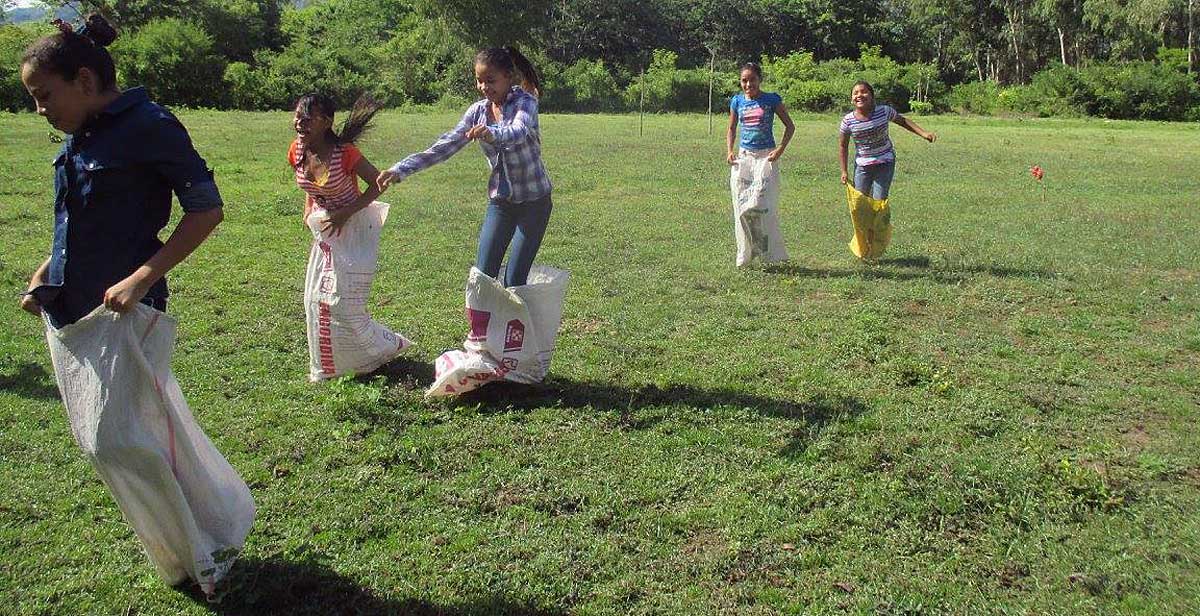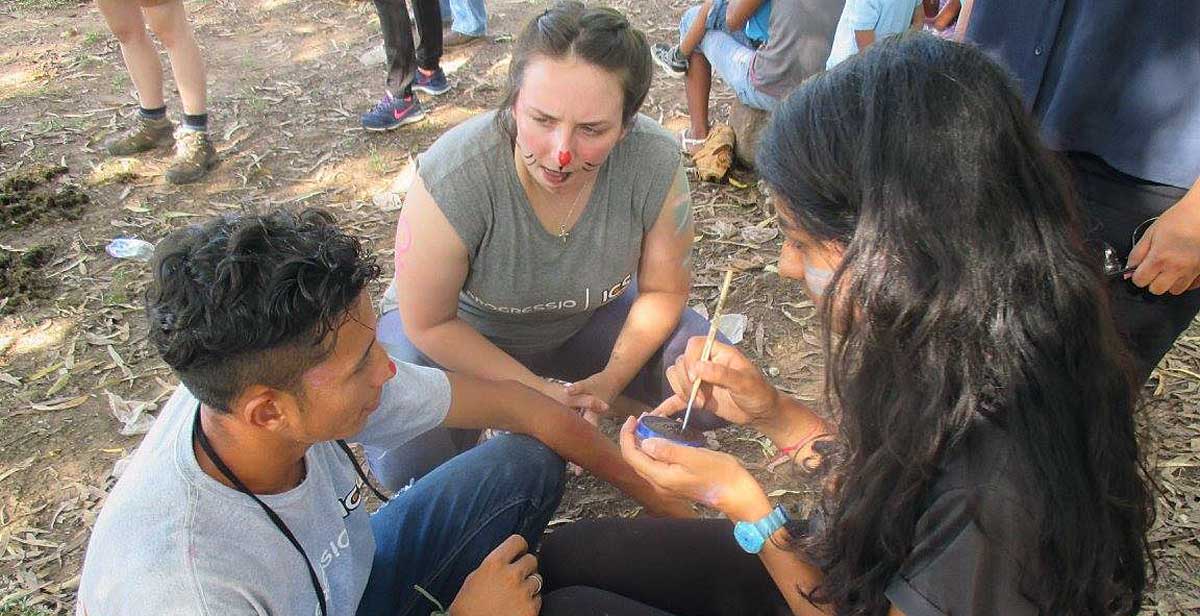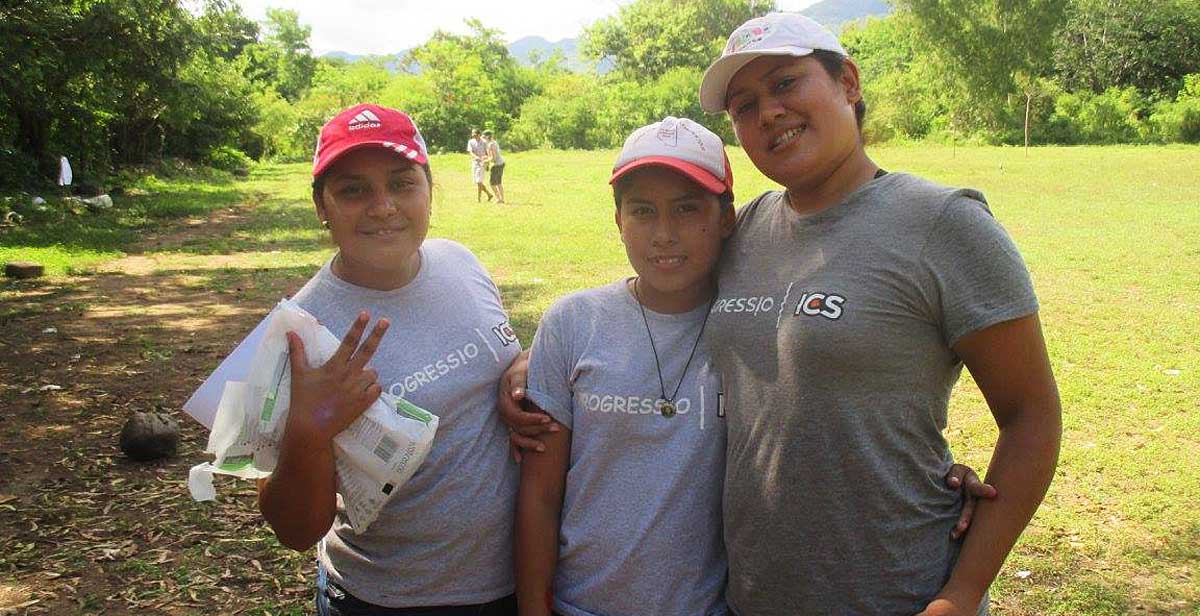Two events were held this week; 1) a climate change talk, and 2) an afternoon dedicated to young girls, known as El Dia de la Niña.
We were particularly enthused about the International Day of the Girl Child as it seemed clear to us this community has a different attitude towards women and children in general. This is not to say it is a bad view, but just different to the attitudes expressed and experienced in the West.
We decided that the event should be a fun day with sports games, such as a three-legged race, sack races and an egg and spoon race. This was followed by face painting and drawing competitions, with prizes given at the end.

Five British and Nicaraguan volunteers spoke at the end of the day expressing their views on gender equality and what can be done in the community to combat inequality.
The event was a great success, with 15 young girls (aged 10-16), six boys, 13 women and 11 men attending.
This event made the group think more about gender equality after the exchange of cross-cultural views and opinions.
It seemed clear, that each community is different and a woman is viewed differently by each society, and therefore it is easy to view a non-Western country as “backward” when a woman’s role is defined at an early age. For example, amongst the Nicaraguan community, a woman’s role is nominally in the kitchen, however it seems to be given equal status with the male role. Compare this attitude to the UK and the USA where we push for women to get out of the “kitchen” role.

It’s easy to look at another community and criticise it for how it’s different from our own, however, much of these criticisms are only differences viewed negatively. If anything, we can learn as much, if not more, from this community as we can give to it. This is something I have noticed especially when concerning gender.
Here, gender roles are what we might consider in the UK as very “traditional” - and, in the typical British manner, this is naturally code for something much more negative. In fact, this negativity is not something I have really experienced here. On the surface, everyone seems pretty happy with their roles and each gender role is given the same prestige as the other; the mother, in charge of the family cooking, appears to be respected and honoured in the same way as the father who spends his day chopping down wood for the family oven. This seems relatively logical, as both of these simple steps are equally required for the family to prosper.
Despite this, many of the Nicaraguan volunteers I have spoken to disagree with my observations. In conversation with my fellow Nicaraguan volunteers, they believe both boys and men have much more freedom, and girls are very much dominated by their fathers up to the age of eighteen. It was also pointed out that women only do jobs to facilitate the man who is the true “breadwinner”.

Among our Nicaraguan counterparts, I have observed the same burning desire to succeed, whether it is in farming or in university, and it seems unfair for them to have to be tied down to their “assigned” gender role. However, an interesting point to note is the general consensus among the community in Parcila that women are more likely to go to university to seek a better life and in many ways “escape” a life they do not want, unlike the man who seems content with the current way of life.
To conclude, clearly the community in Parcila are aware there are challenges to be combatted to overcome gender inequality and there is enthusiasm in the local community to challenge the current status quo.
Hasta la próxima!
Written by ICS volunteers Pradeep (Pepe) Karnani and Ella Boswell



